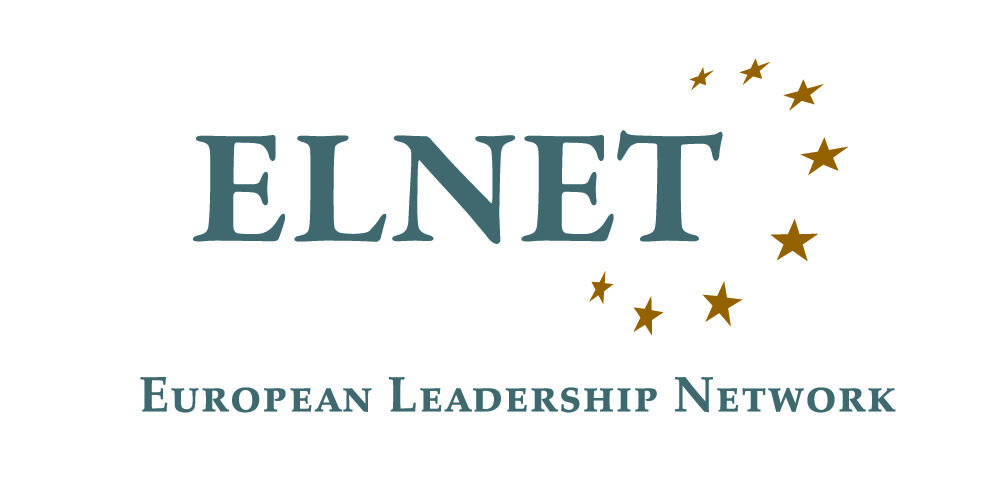The European Leadership Network (ELNET) and ELNET’s Forum of Strategic Dialogue (FSD) brought together senior policymakers and experts from across the UK, Germany, France, NATO, and Israel.
The dialogue addressed: ‘Hamas’s war on Israel and its regional implications’; ‘The Iranian threat’; and ‘Deepening cooperation between Israel, the E3 and NATO to face multiple threats, including Russia’. The discussions were organised by ELNET UK and conducted strictly under the Chatham House Rule.
The dialogue opened with a special welcoming dinner hosted by ELNET UK with keynote speeches by the Chair of United Jewish Israel Appeal (UJIA) Louise Jacobs, and Prof. Emeritus, Middle Eastern History, Tel Aviv University; Founding President, The Israel Institute in Washington; former Israeli Ambassador to the United States, Amb. Prof. Itamar Rabinovich.
The dialogue was chaired by Maj. Gen. (ret.) Amos Yadlin, Chair, ELNET’s Forum of Strategic Dialogue; former Head of Israel’s Military Intelligence; former Director of the INSS. Participants included ministers, senior officials from ministries of foreign affairs and defense, NATO, politicians, as well as former officials, experts, journalists, and civil society representatives from the UK, Germany, France, and Israel.
Below is a summary of the topics addressed:
Hamas’s war on Israel and regional implications
- The attacks of 7 October represent not only a deep trauma for Israel but a political moment that irreversibly upends failed strategic concepts.
- For Israel to destroy Hamas will take months at best, testing the resilience of international solidarity and carrying the danger of escalation with Iranian-backed Hezbollah and other regional proxies. It is further complicated by the desire to return Israeli captives.
- President Biden’s commitment, backed by other Western leaders, is significant in deterring Hezbollah and Iran, but the form and extent of international support for Israel in the longer term is not yet determined.
- The conflict has regional and potentially global ramifications. Without a defeat of Hamas, Iran and its allies will be emboldened and prospects for Arab-Israeli normalization undermined.
- Other knock-on implications for European interests include the potential for Russia or China to seek to take advantage in their spheres.
- Israel lacks a clear policy for the day after in the Gaza Strip, and in developing options needs to address the concerns of the US and Western allies as well as Arab partners.
- There will likely be major political change to come in Israel, with support for Netanyahu collapsing, and with many social, political and economic challenges lying ahead.
- The events of October 7, in conjunction with Iran’s alignment with Russia, has forced European policy makers to reevaluate their previous diplomacy with Iran.
- There are concerns that the Hamas-Israel conflict could distract from Iran’s nuclear program. Sanctions have failed to stop Iran after the US departure from the JCPOA, and as Tehran’s alignment with Russia and China strengthens, there is a need for a coordinated alternative.
- Israelis insist that military options must be on the table to improve the prospects of diplomatic pressure.
Deepening cooperation between Israel, E3 and NATO to face multiple threats, including Russia
-
-
Participants increasingly draw an analogy between Ukraine and Israel as like-minded democracies threatened by autocratic states, Russia and Iran.
In this context there are calls for Israel to go further in support for Ukraine.
-
NATO interests are affected by the Israel-Hamas conflict in the context of the wider global strategic competition.
-
There is a question of whether and how Israel can be integrated into multilateral ‘security architecture’ with European partners. Whilst Israelis are wary of ‘coalitions’ which limit freedom of action, they would welcome deeper cooperation.
-
Missile defence is a particular area where Israel can play an expanding role in Europe.
Conclusions and Recommendations
✓ Hamas’s 7 October attack is part of a wider struggle for the future of the region, in which Iran and its proxies seek to disrupt Israeli-Arab rapprochement. For Hamas and Iran’s agenda to be defeated, European states must sustain their support to Israel for an extended period. This will be easier to maintain if Israel heeds calls to address humanitarian concerns in the Gaza Strip.
✓ Israel will have to build with the US a renewed agenda for normalization and the Palestinian question that addresses the concerns of Arab partners, not least Egypt and Jordan.
✓ Europeans must review aid to the Palestinians to address extremism in schoolbooks, including in UNRWA-run schools, as well as the diversion of funds and materials in Gaza for military purposes.
✓ European governments must address extremism among pro-Palestinian activists within their borders, including those expressing support for Hamas and antisemitism.
✓ A more focused and coordinated alliance is needed to address Iran’s regional agenda including weapons proliferation. European states should increase pressure on Tehran through sanctions and diplomatic isolation; consider sanctions on the IRGC; and show a renewed commitment to disarm Hezbollah in line with UNSC 1701 (2006). Greater support for internal opposition to the regime should also be considered.
✓ It is important to also maintain focus on Iran’s nuclear program and new coordination is required between Israel, the US, and European states on how to deter or prevent weaponization through diplomacy and sanctions; and the red lines that would justify military action if necessary.
✓ More broadly, the growing global polarization between autocratic states led by Russia and China, and including Iran, and an alignment built around democratic states of the West, prompts the establishment of new frameworks for multilateral strategic cooperation that include Israel and European states. These frameworks should deepen cooperation in military innovation and procurement; interoperability; shared training and planning; and cooperation in specific fields including cyber and air defence.
Strategic Dialogues offer the opportunity for parliamentarians, opinion formers and academics to engage and share knowledge on some of the most important challenges facing Europe and Israel and indeed globally. Discussions are of great value, candid and held under Chatham House rules.

